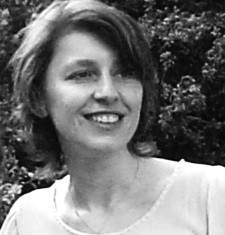
Dr Séverine Boillée
is a young assistant professor at the “Research Center of the Brain and Spinal Cord Institute (CRICM)” at the Salpêtrière Hospital in the heart of Paris, France – the place were Jean-Martin Charcot first described ALS more than 140 years ago. She holds a tenured position and leads a rising group of young scientists.
Dr Boillée has received her PhD degree in Neurosciences, in 2001, where she developed her first studies on the interactions between motor neurons and their surrounding microglial cells. She then moved to the University of California in San Diego and joined the group of Pr Don W. Cleveland, one of the most prestigious ALS laboratories, as a postdoctoral fellow. During her extensive postdoctoral research, she was at the center of the laboratory’s defining concept that motor neurons in ALS do not die alone but their death is strongly influenced by interactions with the surrounding local glia and immune cells.
Dr Boillée returned to France in 2008 and got hired on a permanent position at the “French National Institute of Health and Medical Research (INSERM)”. She holds several grants among them a Marie-Curie international reintegration grant and is a reviewer for multiple scientific journals and national and international grant associations. Her current research focuses on the pathological interactions of microglial cells, the macrophages of the central nervous system, and the affected motor neurons using both in vivo ALS rodent models and primary culture systems. The aim of her projects is to dissect the toxic and protective components of these pathological neuro-glia interactions with her ultimate goal to define novel molecular pathways that could halt motor neuron degeneration and slow the detrimental progressive nature of ALS.
